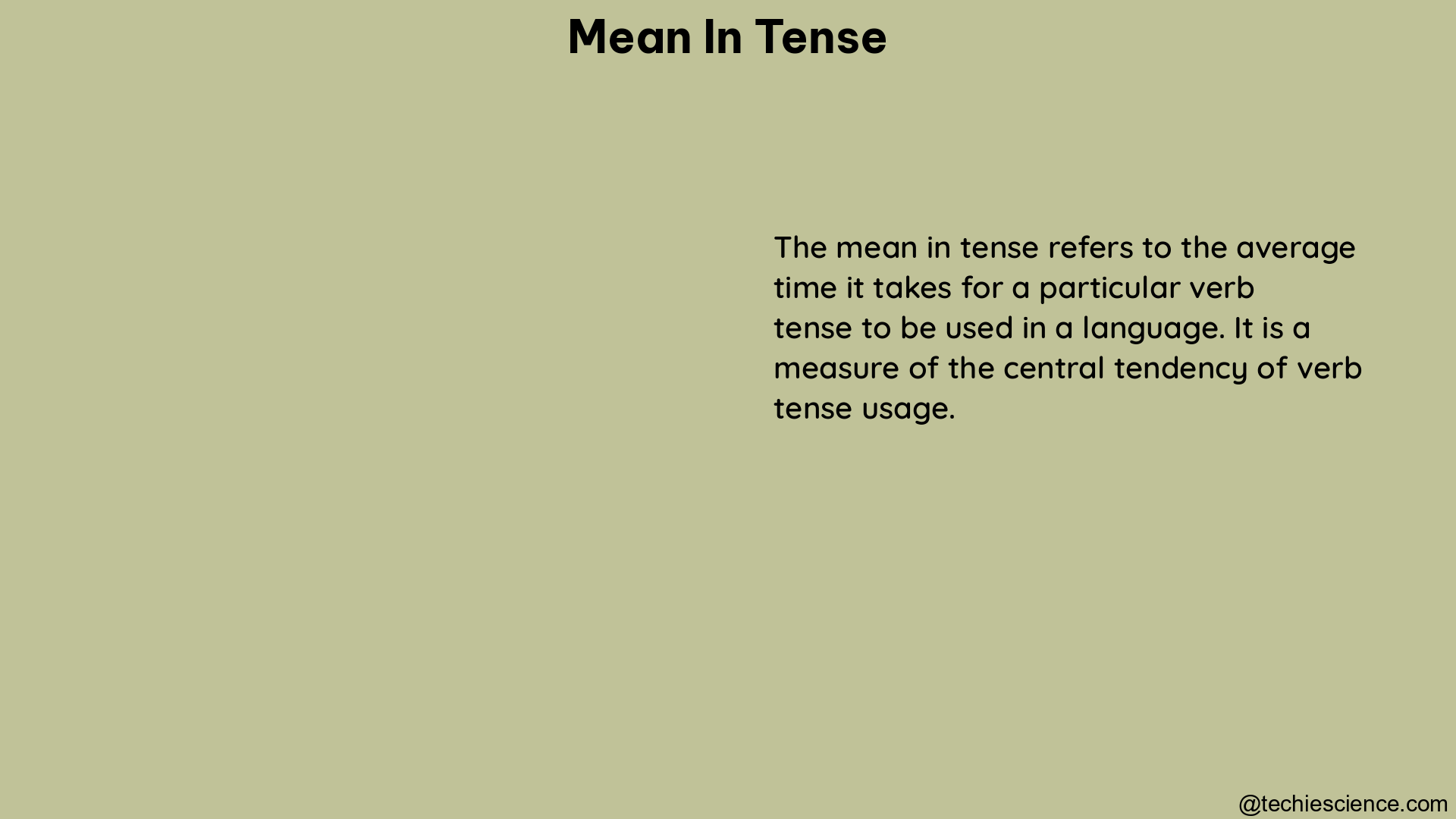The verb “mean” is an irregular verb in the English language, and its conjugation follows specific patterns across different tenses and grammatical contexts. This comprehensive guide will delve into the intricate details of using “mean” correctly in various tense forms, providing English learners with a thorough understanding of this versatile verb.
Present Tense
In the present tense, the verb “mean” has two forms:
- Base Form: mean
-
Example: I mean to finish the project by the end of the week.
-
Third-Person Singular: means
- Example: She means to apply for the job next month.
Past Tense

The past tense of “mean” also has two forms:
- Simple Past: meant
-
Example: I meant to call you last night, but I forgot.
-
Past Participle: meant
- Example: The gift has meant a lot to her over the years.
Continuous Tenses
The continuous tenses of “mean” are as follows:
- Present Continuous: meaning
-
Example: I am meaning to speak with you about the project.
-
Past Continuous: was meaning
-
Example: She was meaning to ask for a raise, but she got nervous.
-
Future Continuous: will be meaning
- Example: By this time next week, I will be meaning to start the new job.
Perfect Tenses
The perfect tenses of “mean” are:
- Present Perfect: has meant
-
Example: The new policy has meant a lot of changes for the company.
-
Past Perfect: had meant
-
Example: The decision had meant the end of our partnership.
-
Future Perfect: will have meant
- Example: By the end of the year, the new software will have meant a significant increase in productivity.
Passive Voice
The passive voice forms of “mean” are:
- Present Simple: is meant
-
Example: The new policy is meant to improve customer satisfaction.
-
Past Simple: was meant
-
Example: The gift was meant to be a surprise for her birthday.
-
Future Simple: will be meant
- Example: The changes to the program will be meant to streamline the process.
Special Uses of “Mean”
In addition to the standard conjugations, “mean” has several special uses:
- Mean to: Used to express intentions or plans
-
Example: I meant to call you before I left, but I got caught up with work.
-
Mean by: Used to ask for clarification on a specific meaning
-
Example: What do you mean by “strike”? Do you mean a work stoppage or a bowling term?
-
I mean: Used as a discourse marker to add or clarify information
- Example: I think we should stay at the Lakeside Inn. I mean, it’s the best option in the area.
Examples of “Mean” in Context
- Talking about intentions:
- A: You have to take the road by the church.
- B: Which church?
-
A: Here’s what I mean, Lynn: there are two roads ahead. Take the right-hand road.
-
Talking about necessity or obligation:
-
I’ll have to catch the 7 am train to Nottingham, which means getting up at 5 am.
-
Talking about significance:
- The bracelet meant a lot to her. It had belonged to her grandmother.
Conclusion
The verb “mean” is a complex and versatile word in the English language, with a wide range of conjugations and special uses. By mastering the various tense forms and understanding the nuances of its application, English learners can improve their fluency and precision when using this important verb. This comprehensive guide has provided a detailed overview of the conjugation patterns and usage of “mean,” equipping you with the knowledge to confidently and accurately employ this verb in your written and spoken communication.
References
- WordReference.com. (n.d.). Conjugation of mean. Retrieved from https://www.wordreference.com/conj/enverbs.aspx?v=mean
- Cambridge Dictionary. (n.d.). Mean – English Grammar Today. Retrieved from https://dictionary.cambridge.org/us/grammar/british-grammar/mean
- Collins Dictionary. (n.d.). MEANT definition in American English. Retrieved from https://www.collinsdictionary.com/us/dictionary/english/meant

Hi…. I am Goutam Datta. I have completed a double M. A. in English and B. Ed. I am a creative writer. Currently, I am a part of the LambdaGeeks.